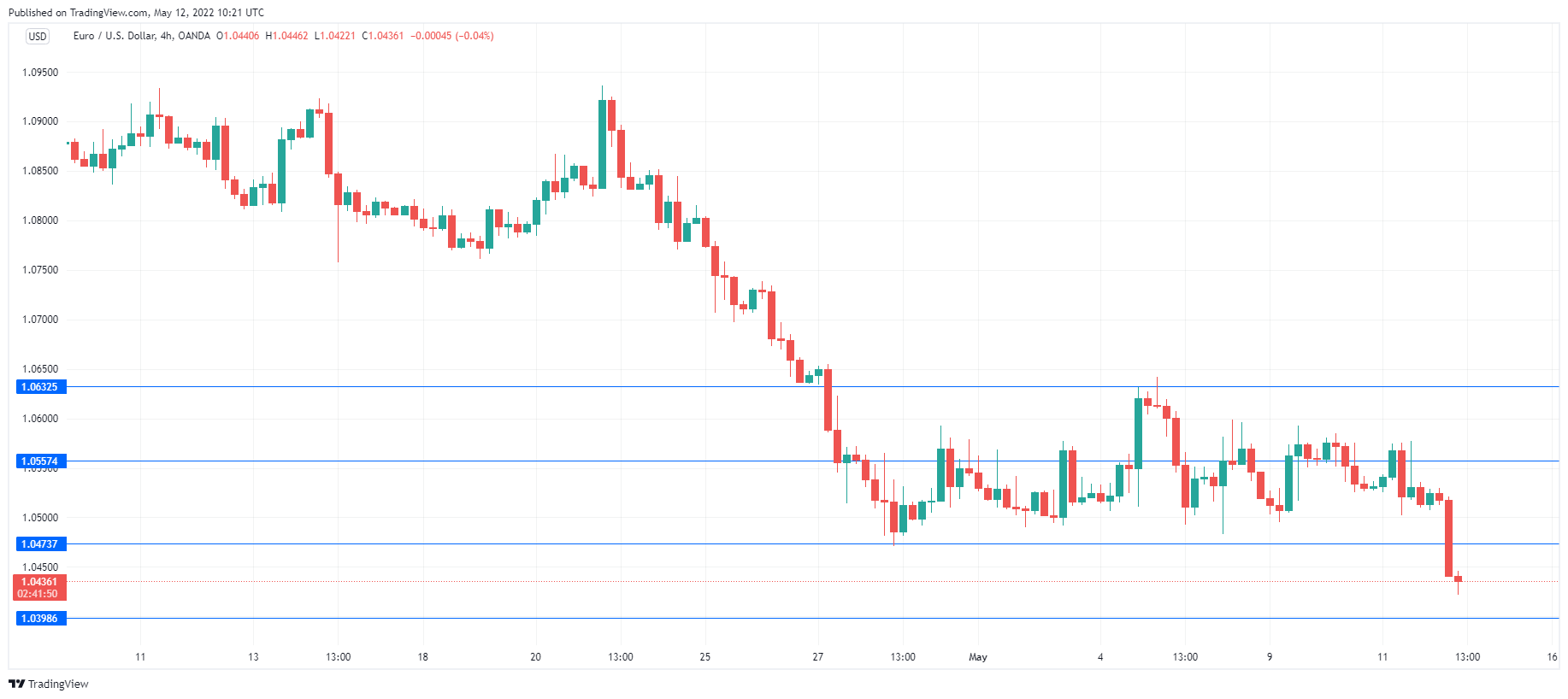The euro has fallen close to the 1.04 level, which has held since January 2017. In the European session, EUR/USD is trading at 1.0429, down 0.81% on the day.
ECB hints at a rate hike in Q3
After years of monetary easing which was fueled by low inflation levels, the ECB is slowly but surely switching gears and talking openly about a rate hike. It wasn’t long ago that ECB President Christine Lagarde was dismissing high CPI numbers as “transitory” and saying that the ECB would remain out of sync with the Fed and its tighter policy. Lagarde has been forced to change her tune, however, as eurozone inflation has soared, hitting 7.5%. Germany’s inflation rate, released today, rose to 7.4%, an all-time high for a second successive month (7.3% prior).
Eurozone inflation is being driven by high energy and food prices, both of which are largely due to the war in Ukraine. With no end to the conflict on the horizon, inflation could climb even higher, putting pressure on the ECB to start tightening policy.
Lagarde said on Wednesday that the ECB will end asset purchases in Q3 and follow with a rate hike “some time later”. Other ECB members have been less vague and are calling for a rate hike in July. There is a debate within the ECB whether to raise rates by 0.50%, which would bring the deposit rate to zero, or deliver a modest 0.25% increase. The ECB meeting in June should give the markets a better idea as to whether the July meeting will be live.
US inflation dips, but less than expected
US inflation slowed in April, but still came in stronger than expected. CPI dropped from 8.5% to 8.3%, higher than the consensus of 8.1%. This slowdown was not enough for the markets to price in “peak-US inflation”, and the dollar managed to hold its own against the major currencies. The Fed’s hawkish stance appears justified after the inflation release, as the markets are digesting the fact that if US inflation is easing, it will be at a slow pace.

EUR/USD Technical
- 1.0557 remains a weak resistance line, followed by resistance at 1.0632
- There is support at 1.0473 and 1.0398
